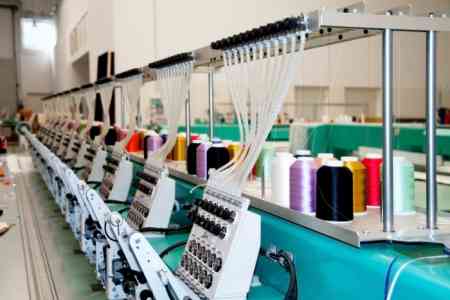


ArmInfo.At the moment, the termination of the GSP+ trade preference regime has not led to significant consequences for the textile industry in Armenia. Representatives of the textile enterprises of the Lori region , and made a similar statement at the meeting with Deputy Minister of Economy of Armenia Rafael Gevorgyan,.
After getting acquainted with the production processes at the enterprises, the Deputy Minister welcomed the work carried out in the light industry and noted that the Armenian government is interested in promoting the industry, taking into account its growth potential.
As a result of the visit, among the chalanges that the sector faces, the need to train specialists in the textile industry was noted. According to the Ministry of Economy, training in secondary vocational schools, as well as short courses where women without age restrictions can acquire the appropriate skills to work in textile enterprises can help to solve this issue.
The source noted that today the "Gulpa" company employs 2,887 people, "Sarton" provides 350 jobs, "Tashir-kar" fulfills orders from abroad.
It should be noted that in January 2022, the Ministry of Economy, with the financing of the "Good Governance Fund" of the Government of the United Kingdom, with the support of the EBRD and the coordination of the Business Assistance Office, launched the Armenian textile industry assistance program. The program is aimed at developing a sustainable and inclusive textile industry in Armenia, which is the main of the strategic priorities of the country's economy.
According to the source, within the framework of the program, proposals will be developed on the possibilities of increasing the value added of textile products produced in Armenia in order to increase its competitiveness, taking into account the fact that this category of products is no longer covered by the GSP + regime.
From January 1, 2022, Armenian exporters will no longer be able to use the European Union's GSP + trade preferences regime. The EU Preferential Regime (GSP+) is a system of customs preferences that allows low- and lower-middle income countries to export more than 6,200 items to the EU market at zero or reduced customs duties. According to experts, as a result of exclusion from the GSP+ system of trade preferences, Armenia will lose 20% of its exports to the EU this year, or about $114 million. According to the Statistical Committee, the production volume of the textile industry in Armenia in 2021 increased 2.1- fold, providing production volumes in the amount of 1.9 billion drams (over $3.7 million). A year earlier, the segment registered a rather serious decline of 31.6%.